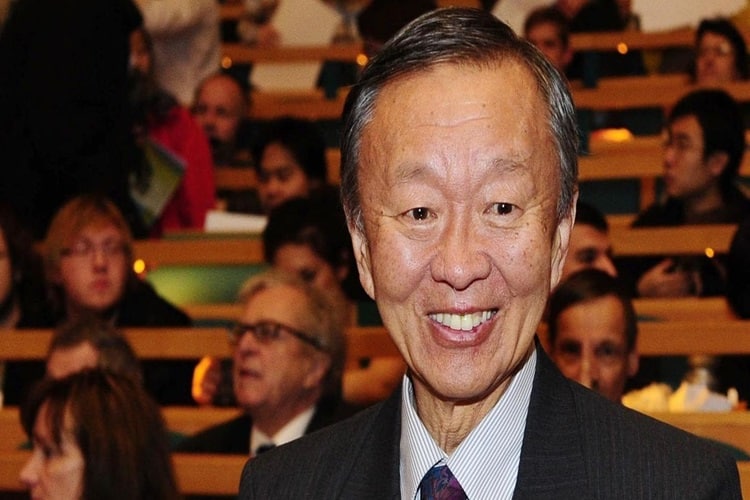Charles K. Kao (November 4, 1933 – September 23, 2018) was an electrical engineer and physicist.
Life and Career
Charles K. Kao was born on November 4, 1933, in Shanghai, China. He was raised in Hong Kong, where he completed his early education. Kao showed an early interest in science and engineering. He pursued his education at Woolwich Polytechnic (now the University of Greenwich) in London, where he earned a Bachelor of Science degree in Electrical Engineering. He then went on to pursue a doctorate at University College London (UCL), completing his Ph.D. in electrical engineering in 1965.
Kao’s most notable contributions were in the field of optical fiber communications. His groundbreaking research laid the foundation for modern optical communication systems. In the 1960s, he conducted pioneering work on the transmission of light in fibers for long-distance communication. Kao’s research identified the potential of optical fibers in transmitting information over long distances with minimal signal loss, revolutionizing telecommunications.
He demonstrated the feasibility of using glass fibers for transmitting light signals, thus enabling the development of high-capacity, low-loss optical communication systems. Kao’s work marked a crucial breakthrough in the development of fiber optics, leading to its practical use in telecommunications and the Internet.
Throughout his career, Kao held various academic and professional positions. He served as a professor and administrator at several institutions, including the Chinese University of Hong Kong and UCL. Kao was a pioneer not only in scientific research but also in advocating the advancement of science and technology in Hong Kong and beyond.
Charles K. Kao passed away on 23 September 2018, Sha Tin, Hong Kong.
Award and Legacy
Charles Kuen Kao received numerous awards and honors throughout his lifetime, largely due to his groundbreaking contributions to the field of optical fiber communications. The most prestigious among these awards was the Nobel Prize in Physics in 2009, which he shared with Willard Boyle and George E. Smith. The Nobel Prize recognized Kao’s pivotal work on the transmission of light in fibers, which laid the foundation for modern optical communication systems.
Charles Kao’s legacy is profound and far-reaching, primarily within the field of telecommunications and technology. His groundbreaking work in the development of optical fiber communication revolutionized long-distance communication and laid the groundwork for the high-speed, high-capacity internet and telecommunication networks we rely on today.
Kao’s contributions made possible the transmission of vast amounts of data across great distances with minimal signal loss. This technology has been instrumental in shaping the modern world, enabling global connectivity, high-speed internet, and the exchange of information on a scale previously unimaginable.
His legacy extends beyond his scientific contributions. Kao was an advocate for the advancement of science and technology, particularly in Hong Kong. He played a significant role in promoting scientific research and education, inspiring future generations of scientists and engineers in the region and worldwide.

